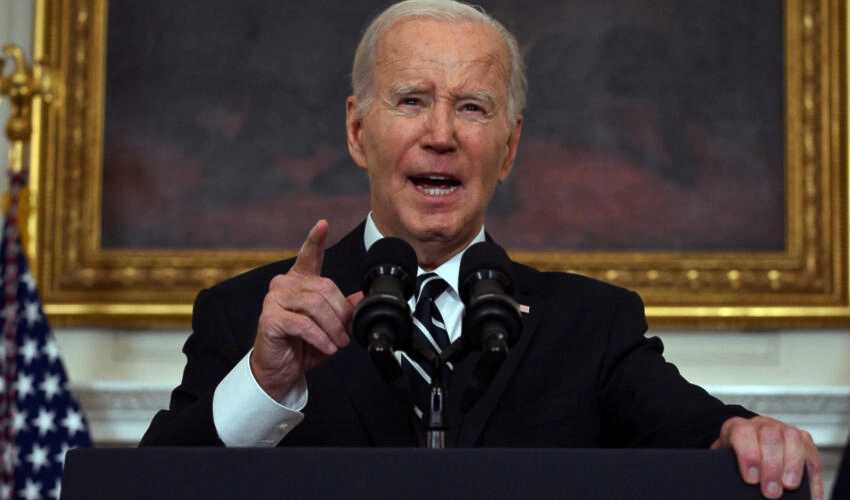US President Joe Biden on Friday revealed intentions to launch the first military airdrop of food and supplies into Gaza, just one day after Palestinians, dying while waiting for relief, brought attention to the humanitarian crisis that is unfolding in the densely populated coastal enclave.
Biden gave no further details other than to say that the US airdrop would take place in the next several days. Airdrops of humanitarian supplies into Gaza have already been conducted by France and Jordan, among other nations.
Speaking to reporters, Biden stated: "We need to do more and the United States will do more," and that "aid flowing to Gaza is nowhere nearly enough".
A spokesman for the White House, John Kirby, emphasized that airdrops would turn into "a sustained effort". He went on to say that military MREs, or "meals ready to eat," would probably be the first cargo dropped by air. Kirby declared, "This isn't going to be one and done."
Biden told reporters that the United States was considering the prospect of establishing a marine route to transport substantial quantities of aid to Gaza. According to officials, the airdrops might start as early as this weekend.
The United Nations Office for the Coordination of Humanitarian Affairs reports that at least 576,000 Gaza Strip residents, or 25% of the enclave's total population, are in danger of starvation.
According to Gaza's health authorities, Israeli forces murdered over a hundred individuals early on Thursday while they were attempting to approach a rescue convoy close to Gaza City.
Israel said that most of the fatalities were caused by throngs of people swarming toward relief trucks, trampled or run over. Additionally, according to an Israeli official, troops had fired on crowds they believed to be a threat "in a limited response" later on.
The U.N. has stated that it confronts "overwhelming obstacles" in delivering help, with families turning to animal feed and even cacti for survival and medical professionals reporting that children are dying in hospitals from starvation and dehydration.
The C-17 and C-130 are the most appropriate aircraft for the task, though it is unknown which kind will be employed. However, there have been doubts about the efficacy of airdropping humanitarian supplies into Gaza.
Speaking under anonymity, a US official stated that the airdrops will only slightly lessen the suffering of people in Gaza.
The official stated, "It doesn't deal with the root cause," and that, in the end, only opening up land borders could seriously address the problem.
The official also mentioned that because the US did not have troops on the ground, it was impossible for the US to guarantee that the supplies did not go into the hands of Hamas.
Another US official stated that the Biden administration was considering sending help by sea from Cyprus, which is located about 210 nautical miles off the Mediterranean coast of Gaza, in response to pressure from both domestic and international sources.



























